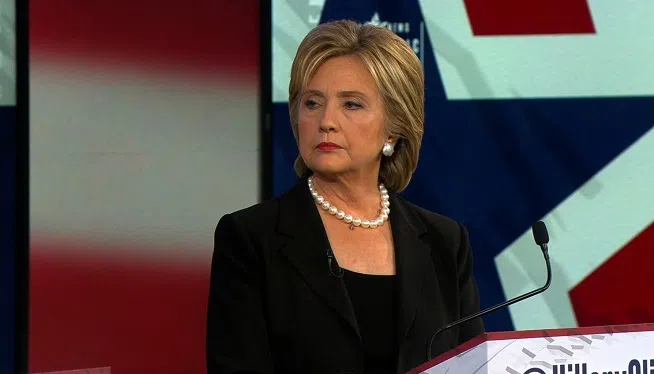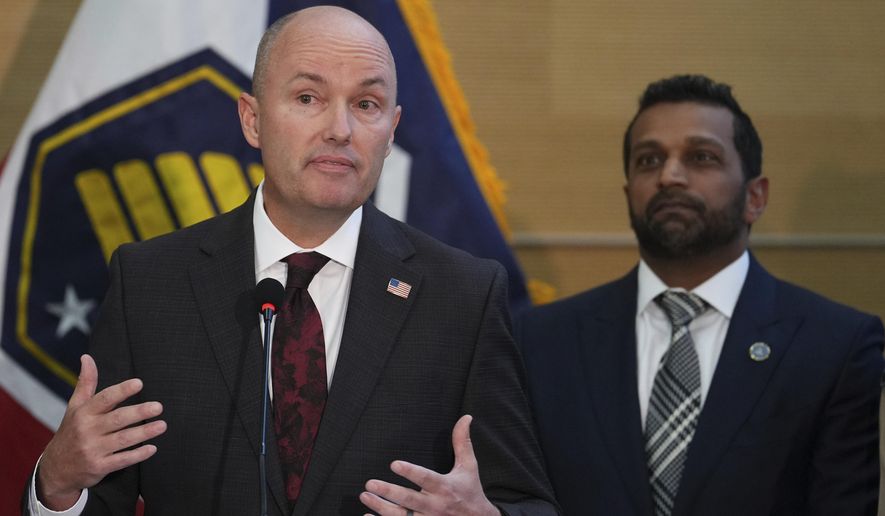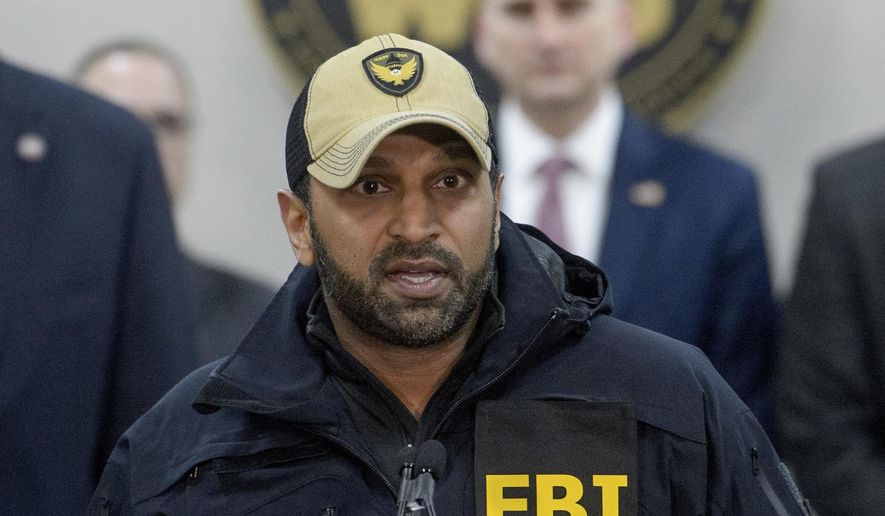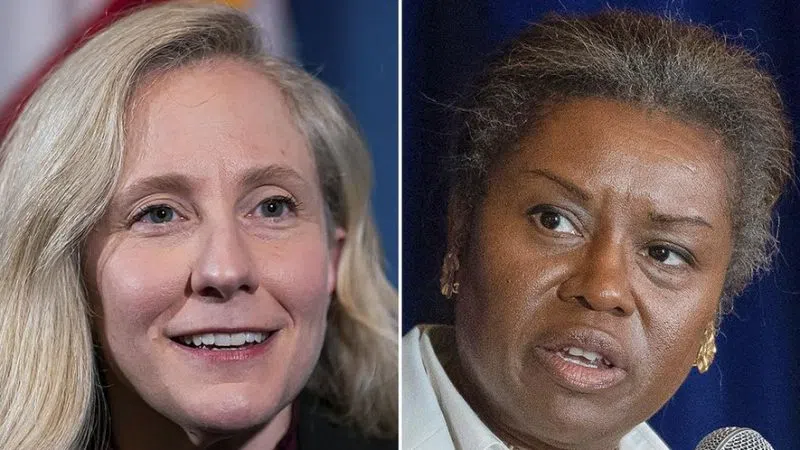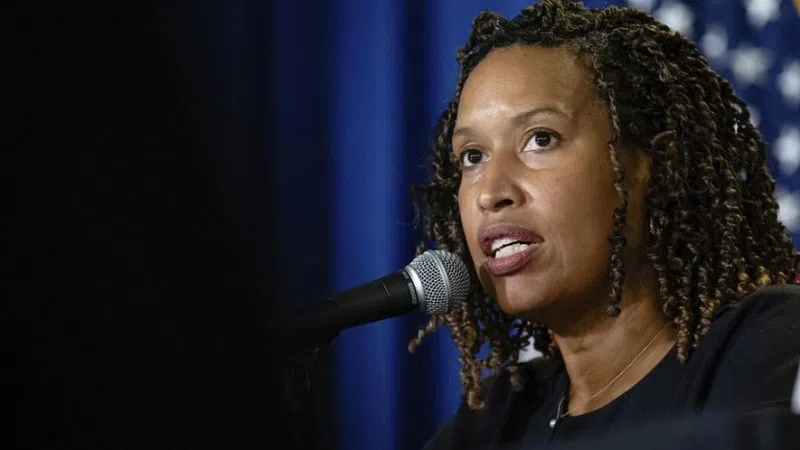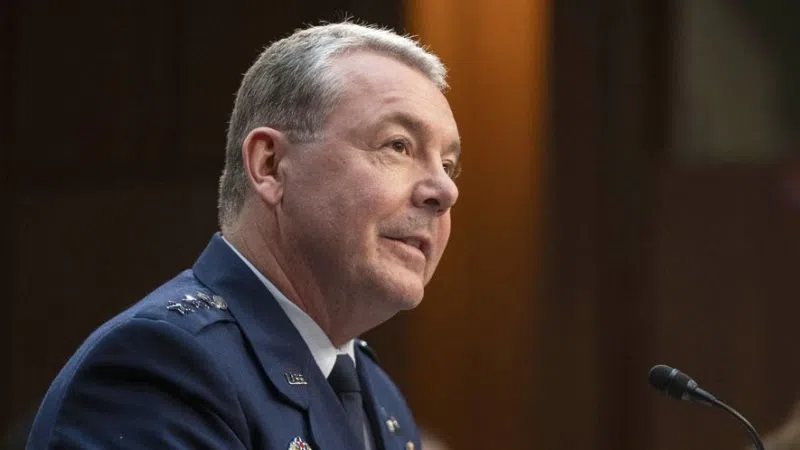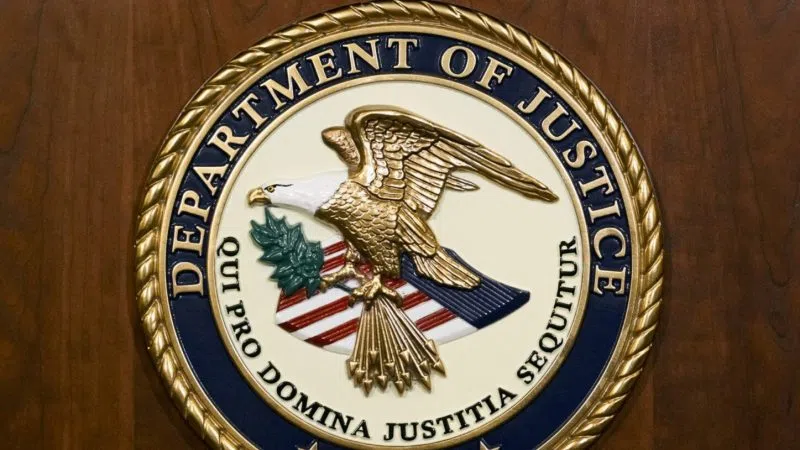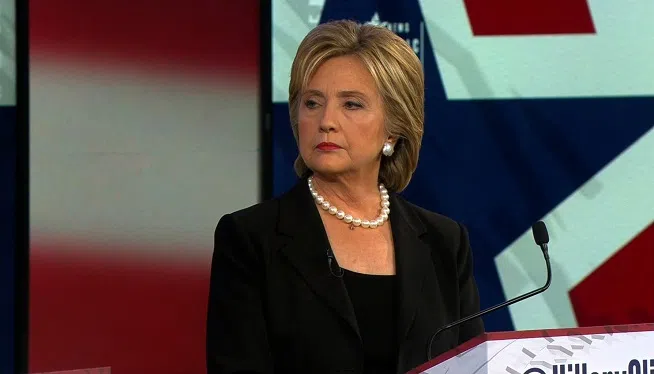
(CNN) — Hillary Clinton is calling for more allied planes, more airstrikes and a “broader target set” in a military coalition to combat the Islamic State in Iraq and Syria.
And those airstrikes “will have to be combined with ground forces actually taking back more territory from ISIS,” the former secretary of state said Thursday in a speech in New York City.
In the wake of the Paris attacks, for which ISIS has claimed responsibility, Clinton said that “every society faces a choice between fear and resolve” — an indirect shot at her Republican foes in the 2016 presidential race, who have called for the United States to shut out Syrian refugees.
Clinton called for more “flexibility” for U.S. Special Operations forces and trainers to work with regional forces — particularly Sunnis and Kurds — in opposing ISIS. But she said she opposes a large-scale U.S. ground war in the Middle East.
“That is just not the smart move here,” Clinton said.
She also called for new political pressure on Iraq’s Shia-led government and on Turkey to set aside old grievances.
“The threat from ISIS cannot wait,” she said.
In a shot at Republicans who have criticized her for not using the phrase, Clinton said that denouncing “radical Islamic terrorism” amounts to giving “these criminals, these murderers, more standing than they deserve.”
Clinton, in a major break from her GOP presidential rivals, called for the United States to continue accepting Syrian refugees despite reports that at least one of the Paris attackers entered Europe under that guise.
“Turning away orphans, applying a religious test, discriminating against Muslims, slamming the door on every Syrian refugee — that is just not who we are,” Clinton said.
She added: “It would be a cruel irony indeed if ISIS can force families from their homes and then also prevent them from ever finding new ones.”
Clinton delivered the speech, which was being worked on and re-written up until it was delivered this morning, at the Council on Foreign Relations’ Pratt House, an ornate mansion on New York’s Upper Eastside.
New York Mayor Bill De Blasio, who just recently endorsed Clinton’s candidacy, sat in the front row, joined by Vernon Jordan, a longtime adviser to the Clintons, and Richard Haass, the president of the Council on Foreign Relations. Thomas Nides, Clinton’s deputy Secretary of State, was also seated in the front row.
Clinton, using a teleprompter, also called for stronger intelligence-gathering capabilities — saying U.S. tech companies have a role to play.
“We need Silicon Valley not to view government as its adversary,” she said, calling for solutions that “will both keep us safe and protect our privacy.”
After the Paris attacks tilted the presidential race toward foreign policy, Clinton is attempting to escape the shadows of her hawkish history and her ties to President Barack Obama’s legacy as she lays out her strategy to defeat the Islamic State.
Foreign policy is an area Clinton, who spent four years as Obama’s secretary of state and was involved in nearly all of his administration’s key decisions during that tenure, counted as a strength at the campaign’s outset.
But even as she has embraced Obama’s domestic policy achievements — a popular move in the Democratic nominating contest — his foreign policy record has become more complicated to address.
Clinton’s primary rivals, Vermont Sen. Bernie Sanders and former Maryland Gov. Martin O’Malley, repeatedly latched Clinton to Obama when Democrats held their second debate Saturday.
Republicans, too, are connecting Clinton to Obama. Republican National Committee spokesman Michael Short said she “can’t walk away from President Obama’s failing ISIS strategy because she helped craft it and even praised it.”
Clinton praised Obama in February, saying that “a lot of the right moves are being made.” And in June of 2015, Clinton said she “would have advised him to do exactly as I believe he is now doing.”
Clinton has highlighted some of her differences with Obama in recent days, casting herself as a hawkish member of Obama’s cabinet. She pushed for the United States to join a coalition to oust Libya’s strongman Moammar Gadhafi. And Clinton pointed Saturday to her calls to train and equip moderate rebels in Syria “very early on.”
Already, Clinton split with Obama by calling for the institution and enforcement of a no-fly zone over Syria designed in part to offer safe harbor for refugees fleeing the country’s civil war and ISIS — a move that would require greater military involvement.
And she made news Saturday by saying that ISIS “cannot be contained; it must be defeated.”
Further complicating Clinton’s task is the original foreign policy wedge between her and Obama: Iraq.
Then-New York senator Clinton in 2002 supported George W. Bush’s push for war. That vote — which she has since repeatedly called a mistake — was key to helping Obama surpass Clinton in the 2008 Democratic presidential primary.
Now, Clinton’s chief intra-party rival for the 2016 nomination, Sanders, is again using her Iraq vote against her — blaming that war for creating a power vacuum that allowed for the rise of ISIS.
“I don’t think any sensible person would disagree that the invasion of Iraq led to the massive level of instability we are seeing right now,” Sanders said Saturday during the Democratic debate in Iowa.
Clinton must also keep one eye on the general election — and Republicans who are advocating a much more aggressive U.S. role in fighting ISIS. Jeb Bush called Wednesday in a speech at The Citadel, a military academy in South Carolina, for American troops on the ground in Iraq and Syria.
The Paris terrorist attacks have in recent days dominated the 2016 cycle and Clinton has used many of her events since then to comment on how she would handle the response. Thursday’s speech is an attempt to set her record out in one place, at one time.
Clinton has advocated for accepting refugees fleeing Syria over the last few days, but stressed that — unlike her Republican foes in the 2016 race — she would not commit ground troops to the fight.
“We need to have a resolve that will bring the world together to root out the kind of radical jihadist ideology that motivates organizations like ISIS, the barbaric, ruthless, violence jihadist, terrorist group,” Clinton said at the second Democratic presidential debate earlier this month.
But she said the United States should “support those who take the fight to ISIS” rather than fighting the group alone.
“This cannot be an American fight, although American leadership is essential,” she said.
The former secretary of state cautiously supported Obama last month when he decided to authorize the use of special forces in Syria. Her spokesman, Nick Merrill, said that the candidate “sees merit” in deploying the 50 special operations forces.
Clinton has also called for the United States to continue to take in refugees from Syria, something a host of Republican governors and presidential candidates have said they would not do.
“We can’t act as though we are shutting the door to people in need without undermining who we are as Americans,” she told a crowd of supporters in Dallas on Tuesday.
The-CNN-Wire ™ & © 2015 Cable News Network, Inc., a Time Warner Company. All rights reserved. (PHOTO: CNN)
